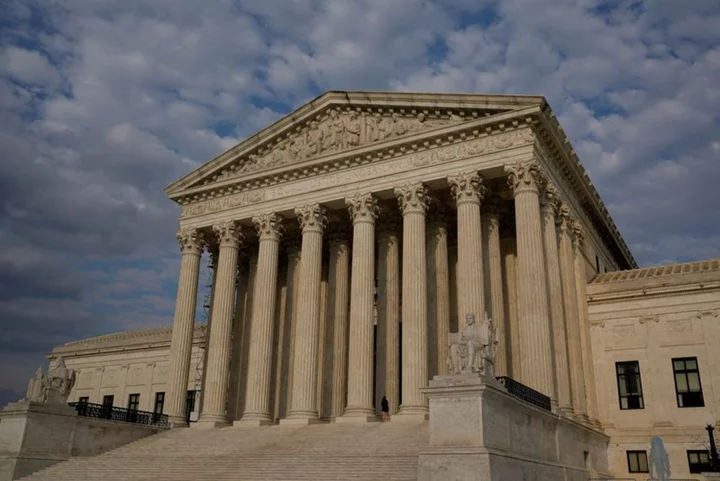By Andrew Chung
The U.S. Supreme Court on Tuesday ruled against a bid by North Carolina Republican lawmakers to amplify the power of state-level politicians over federal elections by limiting the ability of state courts to review their actions in a ruling with major implications for the American democratic process.
The decision upheld a 2022 ruling by the North Carolina Supreme Court, as the justices declined to embrace a once-marginal legal theory called the "independent state legislature" doctrine favored by conservatives that removes any role of state courts and state constitutions in regulating presidential and congressional elections.
The legal theory is based in part on the U.S. Constitution's statement that the "times, places and manner" of federal elections "shall be prescribed in each state by the legislature thereof."
Gerrymandering is a practice involving the manipulation of electoral district boundaries to marginalize a certain set of voters and increase the influence of others. In this case, the Republican legislators were accused of partisan gerrymandering to marginalize Democratic voting power.
Legislative districts across the country are redrawn to reflect population changes documented in the nationwide census conducted by the federal government every decade. North Carolina's Republican-controlled legislature adopted a new voting map following the 2020 U.S. census.
Critics of the "independent state legislature" doctrine, including numerous legal scholars, Democrats and liberal voting rights advocates, have painted it as a threat to American democratic norms. These critics have said its application would let legislatures easily pass further voting restrictions or pursue extreme partisan gerrymandering. The Supreme Court in 2019 barred federal judges from curbing partisan gerrymandering.
The doctrine has gained ground among conservatives and Republican politicians, who have passed new laws and restrictions in numerous states they have said are aimed at combating voter fraud. These efforts accelerated in the aftermath of Republican former President Donald Trump's false claims that the 2020 election was stolen from him through widespread voting fraud.
The North Carolina Republicans argued that the Constitution gives state legislatures - and not other entities such as state courts - authority over election rules and electoral district maps. They contended that the state court usurped the North Carolina General Assembly's authority under that provision to regulate federal elections.
Numerous plaintiffs, including Democratic voters, sued after North Carolina's legislature passed its version of the congressional map in 2021. The plaintiffs argued that the map violated the North Carolina state constitution's provisions concerning free elections and freedom of assembly, among others.
The North Carolina Supreme Court struck down the map in February 2022, concluding that the way the districts were crafted was intentionally biased against Democrats, diluting their "fundamental right to equal voting power." A lower state court adopted a new map drawn by a bipartisan group of experts, and that one was in effect for the November 2022 elections.
Democratic President Joe Biden's administration argued against the Republican position when the U.S. Supreme Court heard arguments in the case in December.
(Reporting by Andrew Chung)

